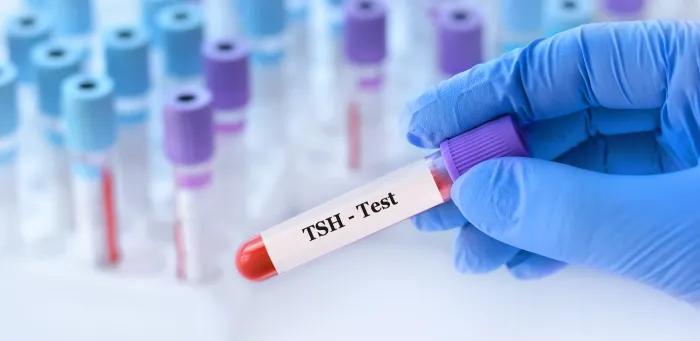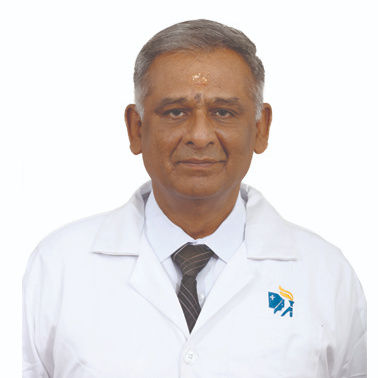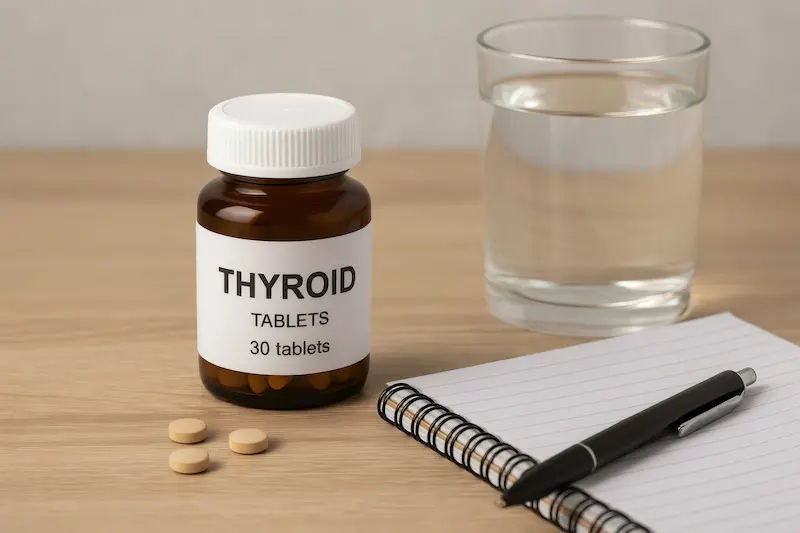Difference Between T3, T4, and TSH
Understand the crucial roles of T3, T4, and TSH in thyroid function and overall health. Learn how these hormones differ and what their levels indicate for your metabolism.

Written by Dr. M L Ezhilarasan
Reviewed by Dr. J T Hema Pratima MBBS, Fellowship in Diabetes Mellitus
Last updated on 13th Jan, 2026

Introduction
Thyroid health is crucial for overall wellbeing, but the terms T3, T4, and TSH can be confusing. If you or a loved one has been diagnosed with a thyroid disorder, understanding these terms can help you manage your condition better. Let’s break them down in simple terms.
What Are T3, T4, and TSH?
T3, T4 and TSH are explained as follows:
Thyroid-Stimulating Hormone (TSH)
TSH is produced by the pituitary gland, a small gland in your brain. Its job is to signal the thyroid gland (located in your neck) to produce thyroid hormones—T3 and T4.
High TSH usually means your thyroid is underactive (hypothyroidism).
Low TSH suggests an overactive thyroid (hyperthyroidism).
Thyroxine (T4)
T4 is the primary hormone produced by the thyroid. It’s mostly inactive and needs to be converted into T3 (the active form) to affect your body.
Low T4 may indicate hypothyroidism.
High T4 may suggest hyperthyroidism.
Tri-iodothyronine (T3)
T3 is the active form of thyroid hormone that directly affects your metabolism, energy levels, and body temperature.
Low T3 can cause fatigue, weight gain, and depression.
High T3 may lead to anxiety, rapid heartbeat, and weight loss.
Get Your Symptoms Assessed
How Do These Hormones Work Together?
Think of your thyroid system like a thermostat:
1. The pituitary gland (thermostat) senses if thyroid hormone levels are low.
2. It releases TSH (signal) to tell the thyroid to produce more T4 and T3 (heat).
3. Once levels are balanced, TSH production slows down.
If this system malfunctions, you may develop thyroid disorders.
Symptoms of Thyroid Imbalance
Symptoms of thyroid imbalance include:
Hypothyroidism (Underactive Thyroid)
Fatigue
Weight gain
Cold sensitivity
Dry skin & hair loss
Depression
Hyperthyroidism (Overactive Thyroid)
Anxiety & irritability
Rapid heartbeat
Weight loss despite eating more
Heat intolerance
Tremors
Common Causes of Thyroid Disorders
Common causes of thyroid disorders are:
Autoimmune diseases (Hashimoto’s, Graves’ disease)
Iodine deficiency (rare in countries with iodized salt)
Thyroid nodules or cancer
Pregnancy or hormonal changes
Certain medications
How Are Thyroid Levels Tested?
A simple blood test can measure TSH, T3, and T4 levels. Your doctor may recommend:
TSH test (first screening)
Free T4 & T3 tests (if TSH is abnormal)
Antibody tests (to check for autoimmune thyroid disease)
Consult Top Physician
Managing Thyroid Disorders
Managing thyroid disorders are:
1. Medication
Hypothyroidism: Synthetic T4 (Levothyroxine) replaces missing hormone.
Hyperthyroidism: Antithyroid drugs, radioactive iodine, or surgery may be needed.
2. Diet & Lifestyle Tips
Eat iodine-rich foods (fish, dairy, iodized salt) – but avoid excess.
Selenium & zinc (nuts, eggs, legumes) support thyroid function.
Limit processed foods & soy (may interfere with thyroid meds).
Exercise regularly to boost metabolism and energy.
Manage stress, as it can worsen thyroid issues.
3. Regular Monitoring
Thyroid levels can change over time, so regular checkups are important.
When to See a Doctor?
If you experience persistent symptoms like fatigue, weight changes, or mood swings, consult a doctor. Early diagnosis helps prevent complications like heart disease or infertility.
Need a Thyroid Test or Expert Advice?
You can easily book a thyroid function test or consult an endocrinologist through Apollo 24|7. Early detection and proper treatment can help you lead a healthy, balanced life.
Final Thoughts
Understanding T3, T4, and TSH helps you take control of your thyroid health. If you suspect an imbalance, don’t hesitate to get tested. With the right treatment and lifestyle adjustments, you can manage thyroid disorders effectively.
Consult Top Physician
Consult Top Physician

Dr. B Sivananda Reddy
General Physician
12 Years • D M ( OSMANIA MEDICAL COLLEGE, KNRUHS ) MD ( KASTURBA MEDICAL COLLEGE , MAHE) MBBS ( PESIMS&R, NTRUHS).
Secunderabad
Apollo Hospitals Secunderabad, Secunderabad

Dr P Jagadeesha Chandra
General Physician/ Internal Medicine Specialist
37 Years • MBBS, MD
Bengaluru
Apollo Hospitals Jayanagar, Bengaluru

Dr. Afreen Banu Khan
General Physician/ Internal Medicine Specialist
12 Years • MBBS, DDM (Diab). FCC (Cardio)
Chennai
Apollo Speciality Hospitals OMR, Chennai

Dr. Shailendra Dube
General Physician/ Internal Medicine Specialist
44 Years • MBBS, MD - MEDICINE
Bhopal
Apollo Sage Hospitals, Bhopal

Dr. Subramony H
General Physician/ Internal Medicine Specialist
25 Years • MBBS, MD
Chennai
Apollo Hospitals Greams Road, Chennai
(50+ Patients)


